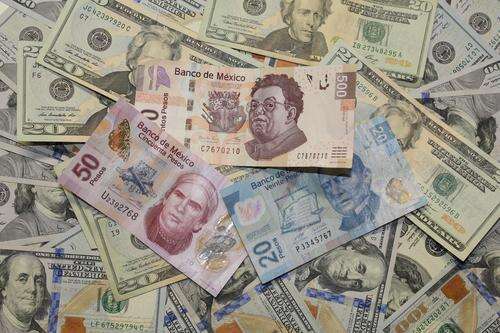The US dollar is losing purchasing power to a new competitor in a fresh set of occurrences. The Mexican peso is rapidly gaining value, posing a unique challenge to the US dollar.
The US dollar has devalued dramatically during the last two decades. According to historical records, the USD’s purchasing power has dropped by 90% since its establishment, causing its value to reach new lows.
The US dollar is declining as inflation rises and debt ratios increase. Amid the instability, calls for de-dollarization have grown stronger, allowing regional currencies to rise.
US Inflation Increase Allows for Rise of Mexican Peso
The US inflation rate climbed to 3.5% in March, exceeding expectations. Indeed, inflation has risen for the second consecutive month. Furthermore, it severely inhibits the Federal Reserve’s power to reduce interest rates.
On Wednesday, the Bureau of Labor Statistics reported that inflation had increased from 3.2% in February. US markets look to Fed Chair Jerome Powell for guidance on where the Central Bank will take the interest rate debate.
Capitalizing on current USD prospects, the Mexican peso is increasing in value, posing a severe threat to the dollar’s dominance.
Mexican Peso Capitalize on USD Prospects
According to a new NBC San Diego investigation, money sent from the United States to Mexico is no longer subject to the same terms. The yield gap expands as the multi-polar currency notion gains traction in the current financial landscape.
However, the overvalued Mexican peso is causing unhappiness in Mexico’s tourism industry. With the USD issue worsening, the country’s tourist indicators have dramatically fallen as travel to Mexico has grown more expensive for US citizens.
With the US minting trillions of dollars every 90 days, the USD’s worth has suffered a direct hit, lowering its global valuation. The US debt measures show no signs of slowing, with the government expected to pay $1.2 trillion in interest alone.












